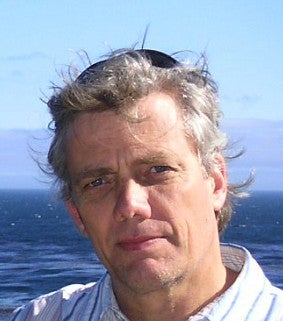Faculty bio | 541-346-5115
Biography:
Jon Erlandson is an academic expert in the field of archaeology, with special emphasis on reconstructing the history and paleoecology of maritime societies. He is noted for advancing the kelp highway hypothesis for the peopling of the Americas. Jon is a pioneer in the emerging field of historical ecology, which integrates biological, historical, archaeological and paleontological data to explore the deep history of human impacts on ancient landscapes and ecosystems. He has worked extensively along the Pacific Coast of North America (California, Oregon and Alaska), as well as Viking age sites in Iceland. Jon can speak to new discoveries of earliest peoples in the Americas, human impacts on ancient environments, the Anthropocene and related topics. Jon has worked closely with Native American tribes to help preserve and protect their ancestral sites. Currently, collaborating with Chumash Indian tribal members, he is leading an effort to officially rename California’s Northern Channel Islands (San Miguel, Santa Rosa, Santa Cruz and Anacapa) to their traditional Chumash names.
Recent Media:
- Whose land are we on? (Yellow Scene Magazine, April 23, 2023)
- A Night at the Museums (Bulletin of the American Academy of Arts & Sciences, spring 2022)
- Four UO faculty members are named fellows of the AAAS (OregonNews, Jan. 28, 2022)
- Why there’s no such thing as pristine nature (Knowable Magazine, Dec. 1, 2021)
- Five breakthrough signs of early peoples in the Americas (Sapiens, Nov. 4, 2021)
- Archaeologists develop a new picture of the human footprint (OregonNews, Sept. 2, 2019)
- Rising seas swallowed countless archaeological sites. Scientists want them back (Discover Magazine, Aug. 27, 2019)
- Discovery by Oregon archaeologist looks 12,000 years into past at people who settled the West Coast (The Oregonian, Jan. 10, 2019)
- UO anthropologists aid effort on Native American artifacts (OregonNews, Sept. 13, 2018)
- Nobody can figure out how the first Americans migrated across the continent (Inverse, Aug. 8, 2018)
- UO archaeologists reveal story of 10,000-year-old remains (OregonNews, June 16, 2018)
- The first Americans were seafarers, not hikers, paper says (OregonNews, Nov. 10, 2017)
- ‘Kelp highway’ hypothesis rewrites history of the first Americans (Inverse, Nov. 2, 2017)
- UO's Erlandson questions new finding on peopling of Americas (OregonNews, April 28, 2017)
- Could these mysterious mastodon bones rewrite the history of the Americas? (The Christian Science Monitor, April 26, 2017)
- Scientists say that ‘nature,’ untouched by humans, is now almost entirely gone (The Washington Post, June 6, 2016)
- What mummy DNA reveals about the spread and decline of people in the Americas (Smithsonian Magazine, April 4, 2016)


